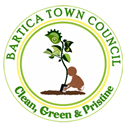Work Package 1: Sensitization and Awareness: For the green economy paradigm to be successful in Guyana generally, and Bartica in particular, it is essential that there is buy-in from the various stakeholders. The established fossil fuel driven implements and technologies are well known. The application of renewable and energy efficient technologies are less so. Furthermore, the sensitization and awareness building needs to be encouraged at all levels, from Government Ministries, i.e., Finance, Communities (inclusive of housing and water), Public Infrastructure, Education and Academia, Public Security; to households, all need to be aware of what the development paradigm is. Additionally, Government of Guyana would be important to ensure that the enabling environment is created, whether through tax rebates, concessions or training, to facilitate what would be a transformational shift. The Universities and educational institutions would be critical in ensuring that a cadre of skills is developed to aid with the capacity building that would be vital to sustain this effort. It is therefore within this context that the messages being transmitted would need to be targeted and focused on the particular interest group. Furthermore, it would need to be gender sensitive and contextually relevant for the municipality. And lastly, it would also be important to make the business case in pursuing a green economy development framework versus the traditional fossil fuel driven development. In this way, the rudimentary costs and benefits can be demonstrated and a space created for the involvement of the private sector. The activities that will be undertaken are shown below:
Estimated Costs – US$ 200,000
| WP and Task | Activities/task | Duration (in months) | |||||
| 1 | 2 | 3 | 4 | 5 | 6 | ||
| WP 1 | Develop and disseminate content manual for proper and electronic media | x | x | x | x | x | x |
|
x | x | x | x | x | ||
|
x | x | x | x | x | x | |
|
x | x | |||||
| Host stakeholders workshops | x | x | |||||
|
x | x | |||||
|
x | x | |||||
|
x | x | x | x | |||
| Conduct community Fora | x | x | x | x | x | ||
Deliverables
- Content manual produced that can be used to effectively communicate details about project including benefits and plans.
- Widespread media coverage about the project, using available media of communication achieved.
- At least two (2) stakeholders’ workshops completed and community fora held.
- Objective feedback and recommendations on the project received.
